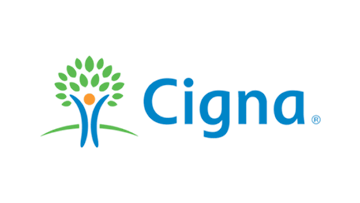
Idaho Behavior’s Unique Approach
At the heart of Idaho Behavior’s mission is a commitment to evidence-based practices designed to elevate behavioral health outcomes. This focus ensures that each client receives personalized care tailored to their specific needs. By integrating cutting-edge research and techniques, Idaho Behavior remains at the forefront of the mental health field.
Idaho Behavior excels at creating individualized treatment plans that empower clients to achieve their personal goals. Their compassionate approach not only addresses immediate concerns but also fosters long-term behavioral change. This client-centered philosophy is the backbone of their success and contributes to the community’s overall mental wellness.
Range of Services
Idaho Behavior offers a comprehensive range of services, catering to clients of all ages and backgrounds. Their services include individual therapy, family counseling, and skill-building sessions aimed at facilitating positive behavioral change. This diversity of offerings allows each client to find the right fit for their unique challenges.
Building on their extensive expertise, Idaho Behavior also provides specialized support for those dealing with anxiety, depression, autism spectrum disorders, and developmental disabilities. This dedicated focus ensures that every client receives the precise care and attention they need to thrive.
Family counseling services offered by Idaho Behavior are particularly noteworthy for their ability to strengthen family dynamics. By fostering open communication and mutual understanding, these sessions help families navigate complex emotional landscapes together.
The Importance of Community Support
Community support plays a vital role in the success of mental health counselors in Nampa. Idaho Behavior is committed to fostering resilience not just in individual clients, but throughout the entire community. This holistic approach enhances the collective mental wellness of the region.
By collaborating with local organizations and stakeholders, Idaho Behavior ensures that their services are both accessible and relevant. Their ongoing engagement with community members enables them to stay attuned to the evolving needs and challenges faced by residents.
Idaho Behavior’s proactive participation in community events and initiatives underscores their dedication to promoting mental health awareness. This active involvement makes a significant impact and demonstrates their unwavering commitment to the well-being of Nampa’s residents.
Creating a supportive network around clients is essential for sustained progress. Idaho Behavior encourages clients to engage with family, friends, and community resources as part of their therapeutic journey.
Insights from Mental Health Professionals
As a mental health counselor with Idaho Behavior, I have witnessed firsthand the transformative impact of our work with clients. Our team of skilled professionals is dedicated to fostering positive change through empathetic understanding and expert guidance.
Working at Idaho Behavior has provided invaluable professional experiences that have deepened my appreciation for the role of mental health counselors in Nampa. Our collaborative and supportive environment enables us to share insights and continuously learn from one another, improving our client outcomes.
Counselors at Idaho Behavior are equipped with the latest tools and training to manage a wide array of mental health issues. This dedication to continuous improvement is a testament to our commitment to delivering exceptional care.
Innovation in Behavioral Health
Idaho Behavior leverages innovative practices to enhance the effectiveness of their services. By integrating new technologies and treatment methodologies, they remain agile in their approach to mental health counseling. Their adoption of telehealth services exemplifies their commitment to accessibility and modern care.
Utilizing innovative assessment tools and intervention strategies, Idaho Behavior ensures that clients receive the most effective treatment plans. This forward-thinking mindset positions them as leaders in the mental health community, continuously striving for excellence.
Challenges Faced by Mental Health Counselors
Working as mental health counselors in Nampa presents unique challenges, including addressing the diverse needs of clients from various backgrounds. Counselors must be adept at navigating complex emotional issues while maintaining a supportive and non-judgmental environment.
Another significant challenge is the ongoing stigma surrounding mental health, which can deter individuals from seeking the support they need. Idaho Behavior prioritizes combating this stigma by fostering an open and accepting atmosphere, encouraging clients to embrace their mental health journey without fear.
Despite these challenges, Idaho Behavior’s counselors are adept at adapting and overcoming obstacles, driven by their dedication to making a difference in the lives of others. Their resilience is a testament to their unwavering commitment to their clients and the community.
Continuously improving professional skills is a necessity for counselors to meet these challenges effectively. Idaho Behavior invests in the ongoing education of their staff, ensuring they remain equipped to tackle the complexities of modern mental health care.
The Role of Family in Therapy
Family plays a pivotal role in the therapeutic process, offering invaluable support and understanding to clients. Idaho Behavior recognizes the importance of family involvement, integrating them into the treatment plan whenever possible. This holistic approach not only benefits the client but also strengthens familial bonds.
Including family members in therapy sessions provides an opportunity to address collective challenges, enhancing the overall effectiveness of treatment. It also allows for improved communication and problem-solving, creating a more supportive environment for the client.
Nampa’s Mental Health Landscape
The mental health landscape in Nampa is continually evolving, and mental health counselors in Nampa like those at Idaho Behavior are leading the charge. By staying connected to the needs of the community, they ensure that their services remain relevant and impactful. Their commitment to innovation and outreach has positioned them as a cornerstone of mental wellness in the region.
As a vital part of Nampa’s mental health ecosystem, Idaho Behavior works diligently to break down barriers to access. Their introduction of sliding fee scales and pro bono services showcases their dedication to making mental health support available to all.
The collaborative nature of the mental health community in Nampa fosters an environment of shared learning and resources. By maintaining strong partnerships with other local organizations, Idaho Behavior enhances their capacity to serve diverse populations effectively.

What is the difference between a counselor and a therapist?
The terms “counselor” and “therapist” are often used interchangeably, but there are subtle distinctions between them. Counselors typically focus on providing guidance and support for specific issues, such as stress, anxiety, or life transitions. They work with clients to develop coping strategies and problem-solving skills. Therapists, on the other hand, often dive deeper into the underlying psychological aspects of an individual’s experiences and behaviors. This can involve exploring past experiences and emotional patterns to foster long-term psychological growth. At Idaho Behavior, our mental health professionals are trained in both counseling and therapeutic techniques, ensuring that clients receive comprehensive care tailored to their needs. It’s important for clients to communicate their goals and preferences so we can best match them with the appropriate type of professional. What personal experiences have shaped your current understanding of counseling and therapy?
What is the difference between seeing a counselor and a therapist?
Seeing a counselor often involves addressing specific issues or challenges, such as improving communication skills or managing stress. Counselors provide support and guidance to help clients overcome obstacles and achieve personal growth. Conversely, therapy often involves a more in-depth exploration of one’s emotions and past experiences, aiming to resolve deeper psychological issues. At Idaho Behavior, we find that clients benefit from a combination of both approaches, depending on their individual needs. For example, someone dealing with anxiety might start with counseling to develop coping mechanisms and then move into therapy to explore the root causes of their anxiety. How do you feel about the potential overlap between these roles in your mental health journey?
What is the difference between a psychiatrist and a mental health counselor?
A psychiatrist is a medical doctor who specializes in diagnosing and treating mental illnesses, often using medication management as part of the treatment plan. In contrast, a mental health counselor focuses on providing therapeutic support and interventions through talk therapy and skill-building. At Idaho Behavior, our counselors work alongside psychiatrists when medication is necessary, ensuring a holistic approach to mental health care. It’s not uncommon for individuals to benefit from both medication and counseling to achieve optimal mental health outcomes. Consider whether integrating both medication and therapy might be beneficial for your situation, and discuss this with your healthcare provider.
What is the difference between a counselor and a behavioral therapist?
While a counselor provides general support and guidance, a behavioral therapist specifically focuses on modifying problematic behaviors and thought patterns. Behavioral therapy is often used to address issues like anxiety, depression, and developmental disabilities, making it a key component of the services we offer at Idaho Behavior. Our counselors can help clients develop strategies for managing emotions and behaviors, making behavioral therapy a practical choice for those looking to implement tangible changes in their lives. Are there specific behavioral changes you are hoping to achieve, and have you considered how a behavioral therapist might assist you in this process?
How does Idaho Behavior approach community support in Nampa?
At Idaho Behavior, we believe that fostering strong community ties is essential for effective mental health care. We collaborate with local organizations and participate in community events to ensure our services are accessible and responsive to the needs of Nampa residents. Our commitment extends beyond individual therapy, as we aim to build a network of support that includes families, local stakeholders, and community resources. By contributing to a broader dialogue on mental health, we help dismantle stigma and promote wellness on a community-wide scale. How might engaging with community resources enhance your mental health journey?
What role does family play in therapy at Idaho Behavior?
Family involvement is a crucial element of our therapeutic approach at Idaho Behavior. By including family members in the treatment process, we enhance communication and foster a supportive environment for the client. Family sessions allow us to address collective challenges and build stronger familial bonds. This holistic method not only supports the individual but also empowers the family unit as a whole. If you’re considering therapy, think about how family involvement might aid in your personal growth and the overall well-being of your family. How do you envision your family participating in your therapeutic process?
Mental Health Resources
- National Institute of Mental Health – The National Institute of Mental Health (NIMH) is the leading federal agency for research on mental disorders. Their website offers information on various mental health conditions, treatment options, and research advancements.
- Substance Abuse and Mental Health Services Administration – The Substance Abuse and Mental Health Services Administration (SAMHSA) is a government agency that provides resources and support for mental health and substance abuse treatment. Their website offers information on prevention, treatment, and recovery services.
- American Psychiatric Association – The American Psychiatric Association is a professional organization of psychiatrists that works to ensure high-quality care for individuals with mental illness. Their website offers resources for both mental health professionals and the general public.
- National Alliance on Mental Illness – The National Alliance on Mental Illness (NAMI) is a grassroots mental health organization dedicated to providing support, education, and advocacy for individuals and families affected by mental illness. Their website offers resources on mental health conditions and support services.
- Centers for Disease Control and Prevention – Mental Health – The Centers for Disease Control and Prevention (CDC) provides valuable information and resources on mental health, including data and statistics, prevention strategies, and mental health promotion initiatives.




